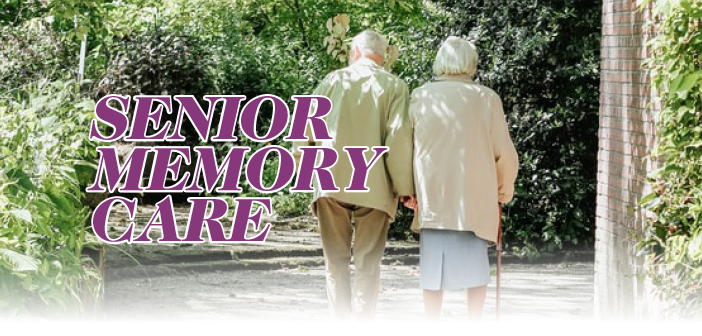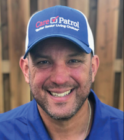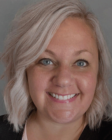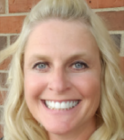Omaha Senior Memory Care 2020
As we age, the likelihood of developing memory loss increases dramatically, with the mildest form being age-associated memory impairment, which is characterized by self-perception of memory loss and a declining score in objective memory performance compared with younger adults. All told, about 40% of Americans 65 and older—or about 16 million people—have age-associated memory impairment, and about 1% of them will progress to dementia annually. The World Health Organization (WHO) defines dementia as a syndrome in which you’ll see deterioration in memory, thinking, behavior, and the ability to perform everyday tasks.
When a loved one begins to show early signs of memory loss— forgetfulness, losing track of the time, becoming lost in familiar places— it can create difficult questions for family members who wonder if it will progress, but when you see those early signs is a good time to start thinking about what you would do if the memory loss progressed. If it continues into middle and late stages, it can lead to caregiver stress and burnout and can make the need for senior memory-care services and facilities more urgent. Fortunately, Omaha has a host of exemplary memory-care sites and services to guide you and your family through the process of determining how and where to best care for a loved one who’s suffering from memory loss or dementia, whether that means moving them into a care community or receiving treatment at home.
A Tour Guide for the Journey
It is always an emotional time, and sometimes frightening, when a loved one begins showing signs of memory loss or, worse yet, is diagnosed with Alzheimer’s disease or dementia. In the beginning, you work with your loved one’s doctors to ensure they get the proper care and diagnosis, then often care for them on your own or by bringing a caregiver into their home, depending on the time and severity of their memory loss and behavioral changes. If the time comes that you need more help than that, where do you even begin? Where do you turn for help?
You can turn to CarePatrol (CarePatrol.com), the nation’s largest senior-placement organization for everything from independent living to assisted living, memory care, and more. Their services are FREE, and they walk seniors and their families through every step of the journey. They start by getting to know each family through extensive discussions about needs, concerns, finances, and preferences. CarePatrol then narrows down the list of memory-care communities that best fit those needs, and walks you through the entire journey to select the perfect place.
“We get to know the family first before doing anything else,” said Omaha CarePatrol Franchise Owner Tom Hallman. “Once we meet the family, they are part of our family, not just throughout the selection process but even after they are placed, because we check in to make sure everything is going well after they’re relocated.”
Generally, Tom will go with families on tours of facilities once they narrow down the list. In COVID times, that means going on virtual tours with them, which isn’t quite the same but still provides the comfort of seeing their options up-close. CarePatrol has more than 150 franchises throughout the country, so even if your loved one is in another state, Tom can help gather information and get you connected with services in the area where your loved one wants to be.
Even if your family isn’t to the point of needing to move a loved one to a memory-care facility, it’s good to meet with CarePatrol on the tenet that ‘If that were to happen to dad or mom, what would we want?’ It’s also a good time to make sure that the senior has assigned Powers of Attorney for medical and financial purposes, so you don’t have to guess later what they might have wanted.
A Special, Safe Haven
CountryHouse Residences for Memory Care (countryhouse.net) is part of the Agemark family of senior-living communities, with three locations in the Greater Omaha area (plus a fourth opening in December 2020!) and a total of 25 nationwide. Their philosophy revolves around creating and ensuring joy for those living with Alzheimer’s disease and memory loss, while recognizing the difficult journey for everyone involved.

Marty Hug CountryHouse Residences for Memory Care
“Our view of those who have memory loss is that, if it comes with physical or cognitive challenges, they’re just challenges,” said COO Marty Hug. “We don’t see age. We don’t see challenges. We just see people. And all people want the same thing: to live a purposeful, well-lived life. So we focus on them individually and use our resources to give them a voice that’s heard. We help them to grow, to have fun, and to live the life they always wanted before their diagnosis.”
The community works closely with families to learn about what their loved one enjoyed doing before diagnosis and what they wanted to do later in life—then they tailor daily plans toward those things.
“We provide transportation beyond what many communities do,” Marty said. “Most companies will take residents to the doctor, dentist, or grocery store, but what we say is, ‘Tell us where you want to go—within reason, of course. Say someone went out for pie at a certain place every Tuesday. We’ll transport them to continue doing that. Or if they want to go to the zoo, or if they came from a farm and had a garden they want to visit, we’ll go out there with family and let them do some gardening. We also take residents to the YMCA to lift weights or swim, and we take them Christmas caroling, to do volunteer work at schools, and to the Humane Society. We want to provide those opportunities they always wanted irrelevant to the challenges.”
While we all have people we love and want to take care of, including those with Alzheimer’s and dementia, there may come a time when the needs of a person who has a disease are too much to for a family member to manage alone. If so, that’s when CountryHouse can step in. They work with families whose loved one may be in the early stages of memory loss, so they know what resources are available if and when they need them. CountryHouse also sponsors a regular family-support group—to learn about how to cope with cognitive memory loss when it involves someone you love—and participants do not have to know someone living there to participate.
“Our greatest goal is an effective treatment and cure for Alzheimer’s and dementia,” Marty said. “Until then, we’re just going to love people and help them get through this challenging time.”
Meeting Individual Needs
Prairie Meadows Alzheimer’s Care Center (prairiemeadowsseniorliving.com) is a memory-care facility with 66 beds in four types of apartment-style housing—private deluxe, private, semi-private (just shared bathroom), and companion rooms— and a nurse at the facility around the clock. They use a “meaningful moments” program to help get to know residents by learning their life stories and finding out their preferences, likes, dislikes, and cherished memories. Prairie Meadows then incorporates that information into their everyday care. For example, if they have a favorite restaurant they like to go for a steak, a Prairie Meadows caregiver takes them to that restaurant for a steak! Or if they like to go to the zoo, boating, fishing, or some other activity, the care team will make it happen.
“Our residents have access to a whole host of amenities and programming options to help keep them active and engaged in daily life,” said Community Resource Director Don Woods. “Plus, we have a nurse 24/7, which is way above and beyond the minimal regulations of eight hours a day, and we partner with home health, hospice services, everything we need to provide all of the services they need in the comfort of their own space.”
One of the biggest challenges for people who begin suffering from memory loss or are diagnosed with dementia or Alzheimer’s is the feeling of not knowing what to expect from their memory changes. For some people, things change quickly, and for others, the decline is more gradual.
“Nobody is the same as anyone else, so we treat each person’s needs individually,” Don said. “From a resident’s point of view, frustration may grow over time, especially when they want to tell you something but can’t always conveniently come across the words to get a point across. They often struggle with that because they think they’re being clear, but often are not. As a result, we pay a lot of attention to things like body language and all other verbal and non-verbal messages. COVID really takes a toll on residents, psycho-socially and overall, because they don’t understand why they can’t do the things they’ve become accustomed to. We have to help them through and do a lot of redirecting.”
Prairie Meadows understands that dealing with dementia is also extremely difficult for the families of those suffering, too. As a result, they offer monthly family support groups (currently on Zoom) and online support, both for families of residents and nonresidents. There is no charge for participating in a group, and they want as many families as possible to benefit from them, whether their loved one lives at Prairie Meadows or they just need to talk to others experiencing the same thing.
Living One Moment at a Time
In 2003, Midwest Geriatrics, Inc. (omahaseniorcare.org) established the House of Hope Alzheimer’s Care facility designed specifically for people in the early to middle states of Alzheimer’s disease or dementia. The 50,000-square-foot building is made up of six neighborhoods, four of which are dedicated to memory care, with 10-11 private apartments in each neighborhood. To feel at home, each neighborhood has a kitchen, a family-style dining room, a living room, a washer/dryer, and a whirlpool bath.
Those are the things you see, anyway. What you don’t see is what sets House of Hope apart. It’s called the Vigil Dementia Monitoring System and calls for assistance when residents are unable to do so, helping caregivers provide care exactly when and where it is needed. What’s awesome is that it’s all done through sensors, so the residents don’t have to wear any devices or push any buttons! Outside of the neighborhoods, you’ll find a community room and chapel, a 50’s diner with an authentic soda fountain, a library, a beauty and barber shop, and a beautiful dining area with a deck that overlooks the largest of three courtyards.
“House of Hope is a best-kept secret in our community,” said Director of Development and Marketing Jen Beck. “It is a warm and welcoming place full of staff members who become family to our residents. Living with dementia is difficult for everyone, and we’re so proud to provide a safe, loving home for residents.”
Midwest Geriatrics understands that making the transition from family care to a care community is difficult for everyone involved, so they also have a “Transitions Day Program,” which is designed to ease the stress and worry of those caring for a loved one at home. Day services are available day or night, and activities are similar to the ones offered in the neighborhoods.
Something that Resembles Everyday Life
Care Consultants for the Aging (careconsultants.com) provides in-home services for elderly memory care. They refer Certified Nursing Assistants (CNA’s) or Certified Medical Assistants (CMA’s) who are interviewed, screened, licensed, insured, and bonded to provide assistance with bathing, dressing, toileting, transferring/lifting, meal preparation/feeding, transportation, light housekeeping, companionship, and more. Care Consultants have been serving Lincoln and the surrounding areas since 1998, and they work diligently to select the right caregiver match for the client’s specific needs.
“We have caregivers that specialize in providing care and assisting those who suffer through dementia and Alzheimer’s,” said Care Consultants Omaha Business Development Director Blake Thomas. “Memory loss can be taxing on the seniors themselves, as their mental and physical health reflects one that they aren’t familiar with. Getting diagnosed with something like dementia often evokes a range of emotions, including fear and anxiety. Everyday tasks like cooking, cleaning, shopping, and setting and attending doctors’ appointments can turn into challenges for them to accomplish on their own, which, in turn, becomes the responsibility of family members or caregivers.”
Care Consultants for the Aging is unique in that they are a registry, not an agency. As such, their caregivers are responsible for their own insurance and those for whom they are providing assistance can ask for specific tasks they want the caregiver to help with.
“Ultimately, the client and family set the expectations for their caregivers to follow, be that medical care such as changing oxygen tanks, assisting with gait belts, or administering tests or shots; personal-care tasks like making or feeding meals, bath care, or assistance with walking; or companion care such as cleaning and spending time talking or playing cards,” Blake said.
If you think your loved one might be experiencing memory loss beyond normal aging, watch for signs of symptoms including things that disrupt daily life—forgetting important events, repeating questions, difficulty completing familiar or routine tasks, and misplacing things. Other things to watch for include a change in mood or personality, whether they become more easily agitated, suspicious, depressed, or anxious, and struggling to comprehend spatial relationships or visual images is also a sign of early-onset dementia.
Hourly rates for Care Consultants for the Aging caregivers range from $19.50 to $23.50, depending on the length of the visit—significantly lower than similar businesses in the area. While Care Consultants is generally equipped to get caregiver visits scheduled quickly, it is best to plan ahead if you suspect the need is arising. This allows clients to get comfortable with their caregivers and having them in their homes.
Giving Families a Break
CareBuilders at Home (carebuildersathomeomaha.com) Omaha provides in-home, non-medical services for not just seniors, but for people of all ages. That includes specialized care for people with Alzheimer’s and dementia whose family or other caregivers may need assistance in meeting their loved one’s care needs. They are dedicated to helping clients lead dignified lives in the comfort and safety of their own homes. Executive Director and
Owner Brenda Ouellette said she has understood her purpose since she was 13 years old: To be a servant and to help those in need. Mahatma Gandhi says it best: “The best way to find yourself is to lose yourself in the service of others.”
“It’s a gift to be a servant,” she said. “To be trusted to care for something as intimate as someone’s healthcare needs is a fit and one that I am grateful to be entrusted with. The seed that was planted for me in 1996 when I became a Certified Nurse’s Assistant at Millard Good Samaritan Center in Omaha—and all roads to this point—have brought me to doing what I love as the executive director and owner of CareBuilders at home. Every person matters. Every life we touch matters. Every person who bestows upon me their trust becomes my focus and priority throughout our shared journey, and it is always my goal and mission to provide them whatever care and resources they need to stay in the comfort of their own home where they want to be and to provide their families the peace of mind knowing, in their absence, their loved one is receiving the care and attention they themselves would give.”
CareBuilders at Home has someone on call 24/7 to answer questions or concerns, and they provide everything from in-home specialized care to post-hospital and rehabilitation care, end-of-life care, and Alzheimer’s and dementia care. They understand how difficult it is for families to put their trust in someone else to care for their loved ones.
“You are not alone,” she said. “We are here to help care for your loved one at home and give your family the support it needs to manage the challenges of the changes you face.”






